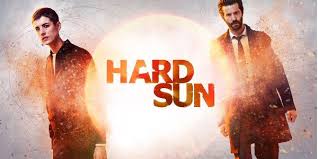
I was aware of Carl MacDougall in an oblique way. I hadn’t read any of his work, but knew him to be the editor of one of the classic Scottish texts The Devil and the Giro: The Scottish Short Story. When I found out the Scottish Book Trust had approached him and he had agreed to be my mentor for my second novel I was chuffed.
I googled him. This is his latest short-story collection, by the now defunct publishers Freight. I admit to a bias here. A hatred of what we’ve become. Mean minded and petty. In a word it’s about class and lack of it. Tim Winton touches on it his essay ‘Using the C-word.’ Carl MacDougall gets it right here. Someone Always Robs the Poor. The theft has become more systematic since the nineteen-seventies when we lost the propaganda war and the advent of Thatcherism/ Reeganism, the growth of individualism and if it was going to end in farce it ends in Trumpism. Let’s hope it doesn’t end in apocalyptic tragedy. Someone always robs the poor, but with the added element of hatred –it’s all their own fault- and we’re to blame for society’s ills.
Someone Always Robs the Poor is the second story in MacDougall’s collection. It begins with the narrator watching the pigs eat her book of fairy tales. They leave behind the feudalism of Poland, the coming genocide of Nazi Germany and their family has a golden to ticket to the promised land of America. Look at the title again.
All day my father stood at the back of the cart waving his hat, and when my mother told him to sit down, he said, I am waving goodbye to Poland. I am looking to see what I have to take with me.
The narrator’s father is an older man. He has purchased his wife, who is very beautiful, and kept her as his own. Hubris leads to nemesis in Leith, Edinburgh, which is not America as the father believes. The streets are not paved with gold, but the sweat of indentured labour. Someone always robs the poor.
‘After the dance’ is not about romance, but rape and how it curdles a person and poisons families.
In Sunset Song, Chris Guthrie’s mother dies and his father almost kills himself working the land. He calls to her from his sickbed, she’s the flesh of his flesh and he wants her. In MacDougall’s story ‘Spitting it Out’ an old man gets out of his sickbed to go and visit his estranged daughter. She’s no right in the heid he says, with they accusations. But we know the story is as old as the bible.
‘Korsakoff’s Psychosis,’ alcohol in the blood, wet brain. You know the score. Last chance for sanity. Get off at this stop kind of story. The narrator, like many of us, have been in the wards, been in the wars where there’s no winners, only losers and those that think they can drink the same as everybody else, or like they used to, when things were better. Amy Liptrot does a smashing job in The Outrun of sinking into the words and the ways we explain to ourselves how we need to drink because that’s how we reward ourselves, and when we’re down that’s just the thing for a pick-me-up. When we see a sunset, how the day is so much sunnier with a beer in our hand. Korsakoff is that Glasgow thing. We drink to be happy and we drink to be sad. Drink it our mentor and tormentor.
Carl MacDougall writes about violence, rape, incest and murder. I guess we’re singing from the same hymn sheets. We speak the same bastardin’ language.
In the preface to Scots The Language of the People, MacDougall uses the c-word. Class. ‘The educated classes struggled to rid themselves of “Scotticisms”’. What was left was the dirt and people that roll in it. That’s me. I’m holding my hand up. It’s no surprise that Billy Connelly is quoted on the back leaf of Someone Always Robs the Poor, ‘Carl is a hero of mine…a great storyteller’.
I envy Carl MacDougall the breadth of his education, the depth of his reading. But the thing about books are they don’t care who you are. Anyone can turn the page and if they’ve got a wee notion, they can read and they too can learn.
I was thinking for example about fucking. You’ve probably heard of it. But more in the dialect sense. When I was writing about Jaz, for example, I wrote. You fuckin’ cunt. Then changed it to you fuckin cunt. The latter is closer to the style that Bernard MacLaverty uses in his short stories. Then one of the characters in Carl MacDougall’s stories says you fucken cunt. Oh, dearie, dearie, which one of us is right?
Well, it’s Carl MacDougall, obviously, because he knows better than most than language is a living thing. Bastard. If you turn to Scots the Language of the People, the section marked Tom Leonard – read on:
The poster for the Makars’ Society advertises a
GRAN MEETIN’
THE NICHT
TAE DECIDE THE
SPELLIN’
O’ THIS POSTER
And the admission price is Thritty pee (a heid).
This wasn’t the only anachronism in the language argument Tom Leonard spotted. On the publication of Six Glasgow Poems in 1969 he altered the argument and rules of engagement by introducing the urban voice and insisting it should be heard, transcribing living Glaswegian speech to prove that language is defined by class as much as by region or country and that working-class speech is as suitable a vehicle for poetry and serious thought as any other;
Tom Leonard: The Voyeur.
what’s your favourite word dearie
is it wee
I hope it’s wee
wee’s such a nice wee word
like a wee hairy dog
with two wee eyes
such a nice wee word to play with dearie
you can say it quickly
with a wee smile
and a wee glance to the side
or you can say it slowly dearie
with your mouth a wee bit open
and a wee sigh dearie
a wee sigh
put your wee head on my shoulder dearie
oh my
a great wee word
and Scottish
it makes you proud








